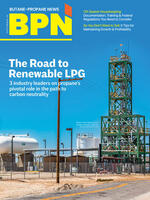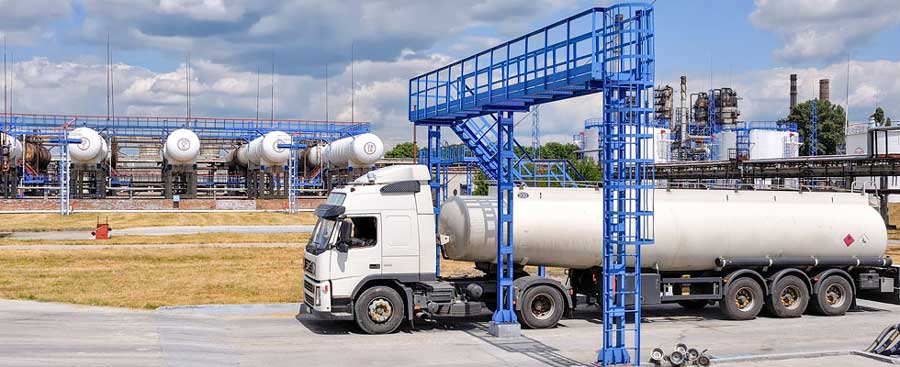
Oil and gas facilities that refine petroleum or natural gas to create liquefied petroleum gas (LPG) or butane and distribute it through pipeline stations regularly store and dispense large quantities of these flammable liquids.
Given the potential for gas vapor, dust or other contaminants to collect in these areas, the electronic equipment installed for automation and control must be designed specifically to prevent unintentional ignition of these elements due to electrical arcing or any other thermal means.
Although much attention is given to the automation system components used to control the process itself, these systems also require computing equipment, such as thin clients, panel PCs, remote touch displays, keyboard, video, mouse (KVM) solutions, and fixed and mobile operator workstations. Given the risks, this equipment must also meet the requirements for use in areas classified as hazardous and be rugged enough to withstand the harsh chemical and high humidity environment generated during the refining and manufacturing process.
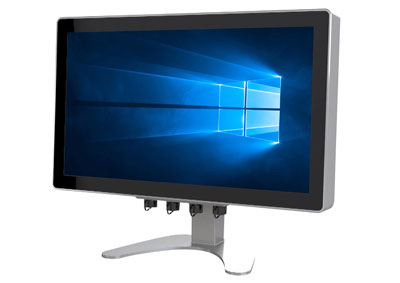 “The manufacturing, processing, storing and distribution of flammable materials like liquefied petroleum can release gases or vapors in the atmosphere, which can result in an explosion or hazard. To create a safe and secure working environment, the computing systems at the worksite must, by regulation, be designed to pass the explosion-proof certification and be able to withstand the corrosive environment,” said Paul Shu of ARISTA Corporation, a provider of computing platforms and visualization display products including thin clients, all-in-one panel computers, ruggedized LCD touch displays and industrial KVM solutions.
“The manufacturing, processing, storing and distribution of flammable materials like liquefied petroleum can release gases or vapors in the atmosphere, which can result in an explosion or hazard. To create a safe and secure working environment, the computing systems at the worksite must, by regulation, be designed to pass the explosion-proof certification and be able to withstand the corrosive environment,” said Paul Shu of ARISTA Corporation, a provider of computing platforms and visualization display products including thin clients, all-in-one panel computers, ruggedized LCD touch displays and industrial KVM solutions.
In simple terms, a hazardous classified location is any area, building, or commercial or industrial premises likely to be exposed to fire or explosion due to the presence of flammable gases, vapors, flammable liquids, combustible dust or other similar materials in very high amounts.
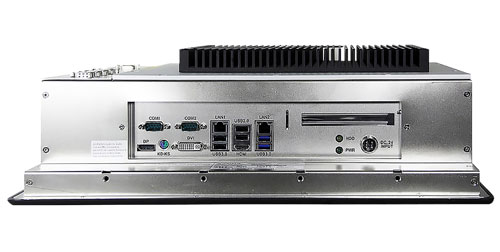 Hazardous locations can be classified into various categories according to the nature of flammable vapors or liquids. In North America, a class/division system is primarily utilized, and regulations related to the design and manufacturing of industrial equipment are formulated by the National Electrical Code, the Canadian Electrical Code, the Occupational Safety & Health Administration and the National Fire Protection Association. Outside of North America, a similar “zone” system is used to define and categorize hazardous areas and potential risk sources.
Hazardous locations can be classified into various categories according to the nature of flammable vapors or liquids. In North America, a class/division system is primarily utilized, and regulations related to the design and manufacturing of industrial equipment are formulated by the National Electrical Code, the Canadian Electrical Code, the Occupational Safety & Health Administration and the National Fire Protection Association. Outside of North America, a similar “zone” system is used to define and categorize hazardous areas and potential risk sources.
To meet the requirements of LPG refining, there are several methods by which equipment can be made flame- and explosion-proof. For computing systems, equipment manufacturers that serve the market can design and manufacture thin clients, industrial panel PCs and touch panel PCs that are UL-certified, non-incendive (equipment having electrical/electronic circuitry that is incapable under normal operating conditions of causing ignition of a specified flammable gas, vapor, dust, etc., due to arcing or thermal means), and that meet the requirements for the various classes/divisions/zones within a plant
or station.
According to Shu, touch panel PCs are routinely deployed as human-machine interface workstations in automated tank farm and loading rack operations. The fully enclosed version is constructed of stainless steel and has no external vents.
This design protects the components from gases, dust, dirt, moisture, chemicals, oil and other external contaminants in an explosive environment. LPG typically arrives by pipeline or rail car and is then delivered to the tanks operated by various companies and agencies. Large quantities of products — primarily flammable and combustible liquids — are stored at these locations and are then distributed.
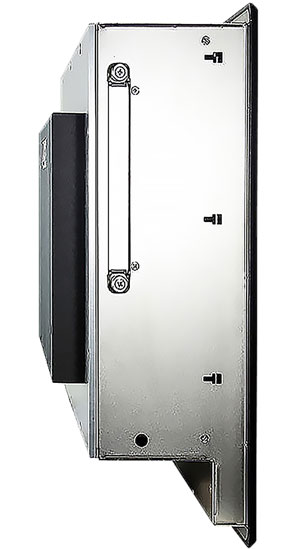 For this type of application, the panel mount PCs are fanless, ruggedized systems certified for use in Class 1, Division 2; Class 2, Division 2; and Class 3, Divisions 1 and 2 hazardous areas. The systems are installed with a Windows operating system and the high-resolution touch screens can be manipulated by operators when wearing heavy-duty industrial gloves.
For this type of application, the panel mount PCs are fanless, ruggedized systems certified for use in Class 1, Division 2; Class 2, Division 2; and Class 3, Divisions 1 and 2 hazardous areas. The systems are installed with a Windows operating system and the high-resolution touch screens can be manipulated by operators when wearing heavy-duty industrial gloves.
Fanless thin client versions are an increasingly popular, cost-effective way to develop a virtual desktop for more centralized management.
With remote accessibility, it is easier to manage, store and use the data, and IT administrators can conveniently access any device connected to the server and make changes. Moreover, thin clients are easiest to configure, manage and deploy.
To maintain a completely safe industrial working environment, LPG producers must install computing systems and peripherals that meet the industry regulations and security standards for hazardous locations across the globe. By working with providers of computing platforms with experience in the industry, facility managers can obtain the UL-certified, non-incendive, corrosion-resistant thin clients, industrial panel PCs, touch-panel PCs and other critical equipment that will stand up to harsh industrial environments.

